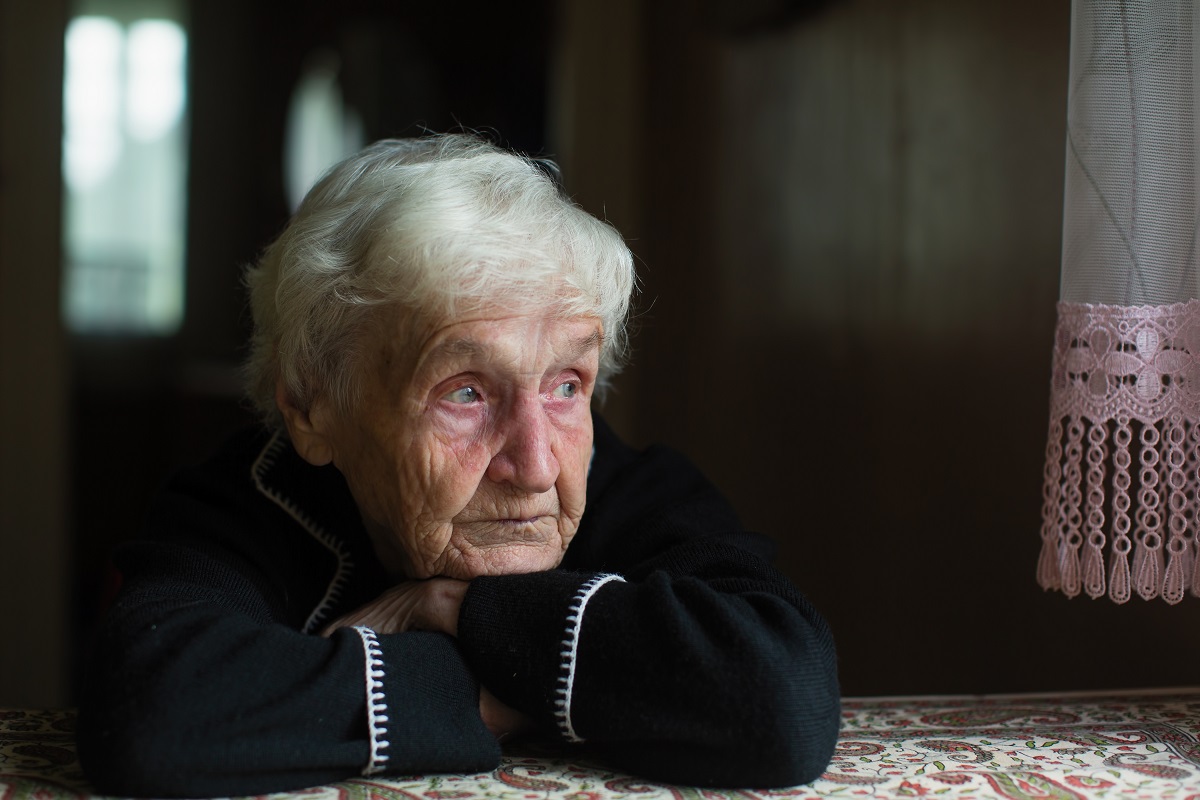Humans are social creatures. We get used to having our loved ones around, and the need for companionship never really goes away. It’s not uncommon for aging adults to lose touch with friends and acquaintances as they enter their golden years. As such, the benefits of home care include socialization and much more that can help your loved one cope with aging.
After leaving the workforce, they may see fewer people daily, some friends and family may pass away, and it might be a challenge to maintain relationships in the digital era. This often leads to isolation in seniors, which essentially means they lack social connections.
According to a recent report published in the National Academies of Sciences, Engineering, and Medicine (NASEM), about a quarter of Americans 65 and older are socially isolated. The report noted that seniors are more likely to have many risk factors that lead to or exacerbate loneliness and isolation, like sensory or cognitive impairment, living alone, chronic illness, and losing loved ones. Additionally, a poll by the University of Michigan Institute for Healthcare Policy and & Innovation found that roughly one-third of aging adults don’t have regular companionship.
Alliance Homecare believes in the importance of socialization for seniors. Interacting with other people is a critical component of holistic health, so companionship is part of the home care services we offer. Here’s what you should know about the impact of social isolation on seniors, the vital role engagement plays in a person’s overall well-being, and how at-home care can help.
The Effects of Social Isolation in Aging Adults
Many people view senior loneliness as an inevitable part of getting older, like developing wrinkles or gray hair. Social isolation is common among older adults, but that doesn’t mean it’s unavoidable or normal.
Some individuals are happier being alone, but this is the exception, not the rule. Also, if an older person doesn’t blatantly say they’re lonely, it doesn’t imply they prefer a life of solitude. The benefits of family connections, friendships, life partnerships, and community involvement can’t be understated, and the need for human interaction doesn’t just disappear with age.
The impact of senior isolation is a serious public health concern. Lack of socialization and companionship is associated with an increased health risk for physical and mental health conditions.
Health Risks of Social Isolation
The CDC (Centers for Disease Control and Prevention) says that for people 50 and older, social disconnection poses some health risks. Recent data show that socially isolated seniors are 50% more likely to develop dementia than those with regular companionship. Loneliness is associated with a higher chance of anxiety and depression as well.
The CDC also reports that lack of social connection elevates a person’s risk of stroke and heart disease by about 30%. Additionally, chronic loneliness increases an individual’s risk of premature death from all causes—potentially even more so than smoking and obesity.
Research published in the Journal of Biomedical Science indicates that isolated seniors and those with ongoing loneliness are more likely to develop Alzheimer’s disease. Though there’s currently no cure for the brain disorder, evidence suggests social interaction may help prevent Alzheimer’s or slow its progression.
These increased risks are a serious concern for older adults. Social isolation is more common among people with existing health issues, which can worsen their condition. What’s more, many aging adults don’t seek the medical care they need without someone to talk to. This makes it harder to mitigate various health concerns and can delay emergency care for falls, strokes, or heart attacks.
Social Isolation in the Pandemic Era
Chronic loneliness was a major concern before the coronavirus pandemic. Sadly, the crisis may lead to higher social isolation rates in aging adults. As seniors shelter in place to slow the spread of COVID-19 and avoid getting the disease themselves, many are isolated from their loved ones.
This likely means they’re unable to interact with families in person for those who live alone due to social distancing. With closures in places of worship, community centers, and other social hubs during the pandemic, regular interaction with friends and community members has diminished as well. And while connecting virtually is second nature to the younger population, many seniors struggle with text, email, and video calls.
As outlined in a recent article in Frontiers in Public Health, the paradox with sheltering in place is that while self-isolation is a means to avoid illness, it can also increase a person’s risk for other health issues. This isn’t to say aging adults shouldn’t practice social distancing if they’re at increased risk for contracting the virus or becoming severely ill from it. However, there are safe ways for seniors to get the social engagement they need, even during a pandemic.
Social Engagement Solutions for Seniors
Companionship and social engagement have an immensely positive impact on a person’s overall quality of life. Chatting and interacting with others can give aging adults a sense of purpose and an optimistic outlook. Here are some safe solutions for socially isolated seniors.
Volunteering
Volunteer work is an excellent way for seniors to actively participate in their communities and interact with others after retirement. A study published in The Journals of Gerontology concluded that volunteering later in life is associated with better cognitive function and memory.
Though the coronavirus pandemic has reduced certain activities’ availability and made others less safe, there are still many volunteer opportunities for seniors. Depending on where an individual lives and what they can do, this might include volunteering at a national park or nature reserve, assisting at the local library, walking dogs for an animal shelter, or helping other aging adults in their community.
Connecting Digitally
As previously mentioned, connecting digitally may not come easy for many seniors. However, most aging adults are capable of learning the basics. If a loved one is experiencing loneliness or struggling in isolation, it might be worth getting them set up on a smartphone or tablet.
Texting, video apps, and even social media are relatively easy to learn. A simple tutorial and a few practice sessions could be enough to open the doors to a whole new world of social engagement. Plus, learning something new is a great brain exercise for seniors. It might even help ward off some degenerative conditions.
Networking Groups
There are networking groups for seniors in every city. And thanks to the internet, they’ve never been easier to find. If you or a loved one suffer from loneliness, spending time with like-minded people can make a world of difference.
Senior social support networks are an excellent way to meet new people and foster friendships. With groups for every interest and demographic, there’s something for everyone, such as walking groups, bingo groups, golfing groups, and emotional-support groups for those who’ve lost loved ones.
In-Home Companionship
As humans, we thrive on social engagement and stimulation from those around us. Volunteering, digital socialization, and networking groups work well for many seniors. However, others may be unable to embrace these solutions due to physical or mental limitations. For these individuals, in-home companion care is often essential.
Aside from providing company, engaging in conversations, and accompanying someone on their daily outings, a companion caregiver can handle many other aspects of care. This might include ADL (activities of daily living) care, in-home health aide care, and household support services. Look for the warning signs a senior needs help at home, so you know when to seek out home nurse care.
At-Home Companion Care in New York City
The services we offer at Alliance Homecare cover a wide range of at-home care needs for those in the New York City metro area. If you are considering at home care versus a nursing home care, know that our services can still provide the companionship element that your loved one may receive in a nursing home. This includes companionship, ADL support, in-home hospital care, chronic care management, nursing care, palliative end-of-life care, post-surgical care, and respite care (what is in home respite care?).
Our work is guided by The Grandma Rule℠ philosophy, meaning the at-home services we provide are up to par with the level of care we believe our own aging loved ones deserve. In other words, our clients are treated with love, respect, and compassion.
Contact us at Alliance today to learn more about our offerings and what to expect from at-home companionship.
External sources:
- https://www.cdc.gov/aging/publications/features/lonely-older-adults.html
- https://ihpi.umich.edu/news/only-lonely-poll-shows-many-older-adults-especially-those-health-issues-feel-isolated
- https://www.ncbi.nlm.nih.gov/pmc/articles/PMC5764000/
- https://www.nap.edu/catalog/25663/social-isolation-and-loneliness-in-older-adults-opportunities-for-the
- https://www.thelancet.com/journals/lanpub/article/PIIS2468-2667(20)30061-X/fulltext
- https://academic.oup.com/psychsocgerontology/article/73/3/522/4079956
- https://www.frontiersin.org/articles/10.3389/fpubh.2020.00403/full





